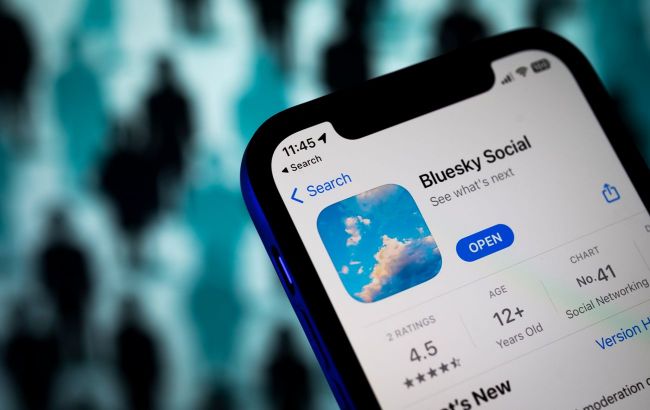Breaking mold: Bluesky social network opens doors to all users
 The social network Bluesky has become available to everyone (Photo: Getty Images)
The social network Bluesky has become available to everyone (Photo: Getty Images)
After a year of closed testing, Bluesky has opened registration to everyone. Previously, the social network only allowed new users to join via invitation code to ensure that the underlying technology supporting the network could handle the traffic, reports TechCrunch.
Bluesky, created by former Twitter CEO Jack Dorsey, has become available to everyone. The social network is considered one of the most promising competitors to Elon Musk's platform X.
Bluesky currently boasts around 3 million users.
One of the key features of the social network is decentralization, which in the future will allow all users to create their own versions of Bluesky with their own rules and algorithms.
The CEO of the social network, Jay Graber, likens this setup to email, where nothing prevents people from communicating with accounts from Gmail, Outlook, or Yahoo Mail.
She notes that such customization of the social network will give users more control over the application.
Additionally, Bluesky users can subscribe to feeds where algorithms show the most popular posts across the entire social network, or to feeds where the content that the user liked the most is prioritized.
Bluesky also features feeds with thematic content, such as science or art.
Furthermore, in the future, the developers of the social network aim to introduce monetization.
What is known about Bluesky
Last year, Twitter founder Jack Dorsey launched a new social network called Bluesky. The app is a clone of the popular social network.
The app has a number of features similar to Twitter, allowing users to search for and follow other users, create posts, including photos, and much more.
However, it is currently in beta, so it has a limited number of users and lacks features such as direct messages.
Bluesky first appeared in 2019 with the support of Twitter as a new type of decentralized standard for social media platforms. It officially separated from Twitter in 2021 and has since joined the ranks of Twitter clones, such as Mastodon, that emerged after Elon Musk acquired the company.
The application aims to allow users to decide how they want to see and consume social media.

